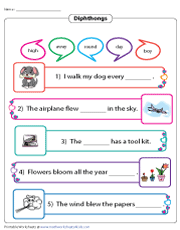

Nevertheless, the prevalence of absolutist words remained significantly greater than that of controls, but slightly lower than in anxiety and depression forums.Ĭrucially, those who have previously had depressive symptoms are more likely to have them again. Here we found that negative emotion words were used at comparable levels to control forums, while positive emotion words were elevated by approximately 70%. Our research also included recovery forums, where members who feel they have recovered from a depressive episode write positive and encouraging posts about their recovery. By contrast, negative emotion words were paradoxically less prevalent in suicidal ideation forums than in anxiety and depression forums. Pronouns produced a similar distributional pattern as absolutist words across the forums, but the effect was smaller. Compared to 19 different control forums (for example, Mumsnet and StudentRoom), the prevalence of absolutist words is approximately 50% greater in anxiety and depression forums, and approximately 80% greater for suicidal ideation forums. “ Absolutist words” – which convey absolute magnitudes or probabilities, such as “always”, “nothing” or “completely” – were found to be better markers for mental health forums than either pronouns or negative emotion words.įrom the outset, we predicted that those with depression will have a more black and white view of the world, and that this would manifest in their style of language. Our lab recently conducted a big data text analysis of 64 different online mental health forums, examining over 6,400 members. The style of language relates to how we express ourselves, rather than the content we express. Does depression cause people to focus on themselves, or do people who focus on themselves get symptoms of depression? Style

However, we don’t know whether these findings reflect differences in attention or thinking style. We know that rumination (dwelling on personal problems) and social isolation are common features of depression. Negative words and first person pronouns can give a clue. Taken together, the findings from such research reveal clear and consistent differences in language between those with and without symptoms of depression. For the spoken word, snippets of natural language of people with depression have also provided insight. So far, personal essays and diary entries by depressed people have been useful, as has the work of well-known artists such as Cobain and Plath. This can help spot linguistic features which humans may miss, calculating the percentage prevalence of words and classes of words, lexical diversity, average sentence length, grammatical patterns and many other metrics. Nowadays, computerised text analysis methods allow the processing of extremely large data banks in minutes. Traditionally, linguistic analyses in this field have been carried out by researchers reading and taking notes. Our new study, published in Clinical Psychological Science, has now unveiled a class of words that can help accurately predict whether someone is suffering from depression.
#Voice tends to jumble words full#
Scientists have long tried to pin down the exact relationship between depression and language, and technology is helping us get closer to a full picture. Just consider the impact of the poetry and song lyrics of Sylvia Plath and Kurt Cobain, who both killed themselves after suffering from depression. Sometimes this “language of depression” can have a powerful effect on others. It is even noticeable in the way you speak and express yourself in writing. From the way you move and sleep, to how you interact with people around you, depression changes just about everything.


 0 kommentar(er)
0 kommentar(er)
